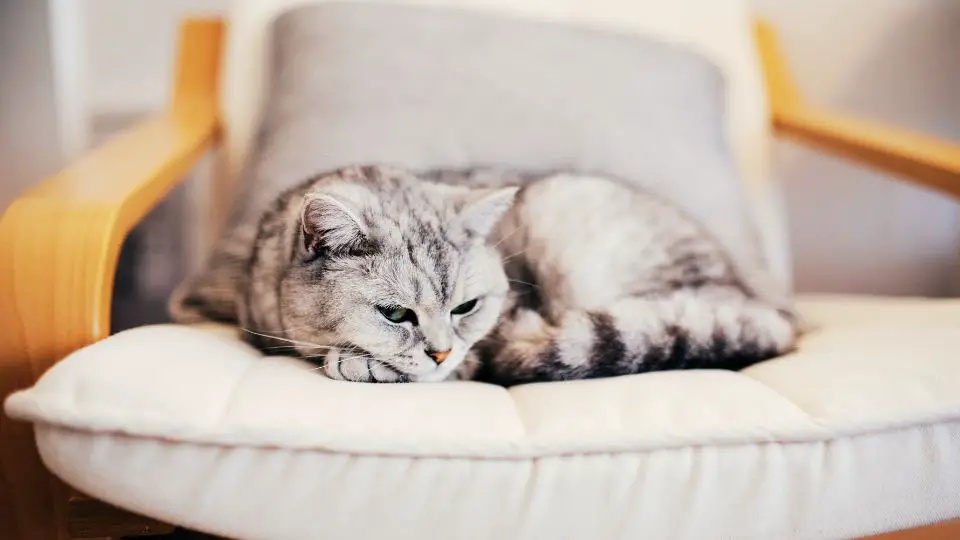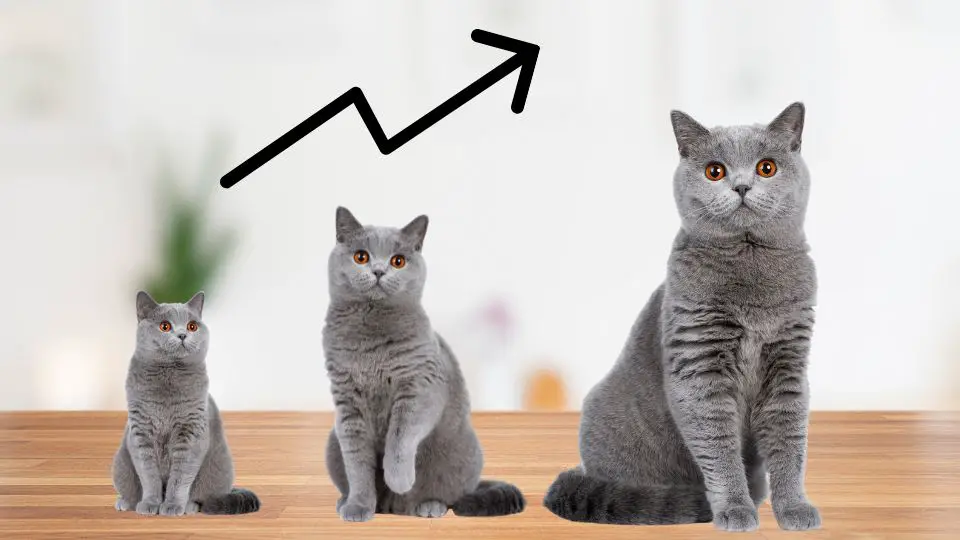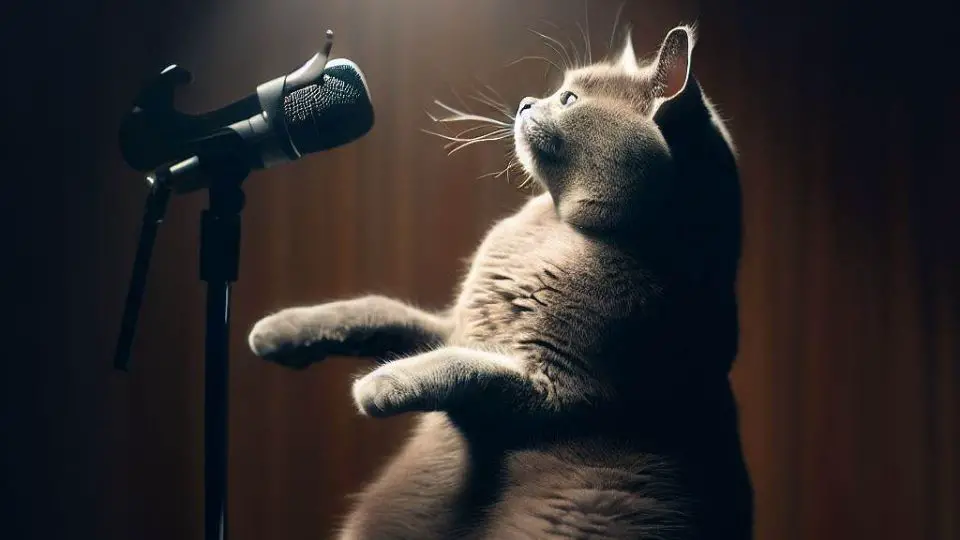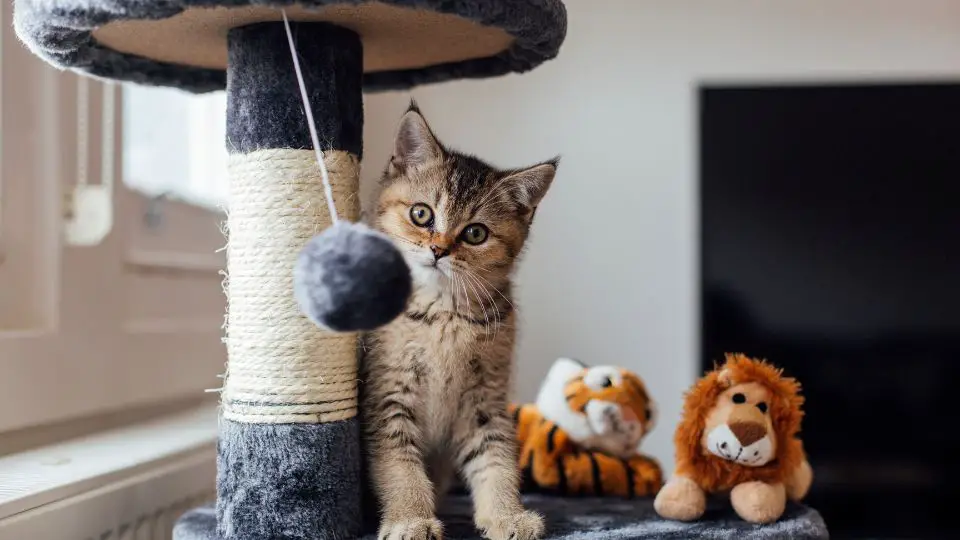British Shorthairs are known for their calm and composed demeanor, capturing the hearts of cat lovers around the world. Their tranquil nature and serene presence make them a popular choice among pet owners. But have you ever wondered why British Shorthairs possess such a calm disposition?
British Shorthairs are known for their calm nature due to a combination of genetic factors, selective breeding practices, and their inherent personality traits.
In this article, we will delve into the factors that contribute to their calmness.
Genetic Factors
The genetic composition of British Shorthairs plays a significant role in shaping their calm nature. While the specific genes involved have not been fully identified, it is clear that certain genetic factors influence their overall temperament. These genes may regulate neurotransmitters and hormones associated with mood and behavior, contributing to their tranquil disposition.
Selective breeding practices have favored British Shorthairs with calm temperaments, ensuring these traits are passed on from one generation to the next. Over time, breeders have focused on preserving and reinforcing the genetic factors associated with their serene nature. Through careful selection and breeding programs, these cats have maintained their calm temperament, becoming one of the defining characteristics of the breed.
Specific Genes and Traits
Although the specific genes responsible for the calm nature of British Shorthairs have not been definitively identified, several traits are commonly associated with their temperament. One such trait is their relaxed and composed demeanor, often characterized by a steady and balanced personality. British Shorthairs are not easily startled or provoked, displaying a calmness that is consistent and predictable.
Certain neurotransmitters and hormones are known to influence mood and behavior in cats, and variations in these genetic factors may contribute to their calm nature. Serotonin, for example, is a neurotransmitter that plays a role in regulating mood and anxiety levels. British Shorthairs may possess genetic variations that result in higher serotonin levels, promoting a more relaxed and stable temperament.
Breed History and Development
The origins of the British Shorthair can be traced back to ancient times. They are believed to be descendants of domestic cats brought to Britain by the Romans. Over the centuries, these cats adapted to the British climate and lifestyle, evolving into the robust and resilient breed we know today.
During the late 19th century, British Shorthairs gained popularity as show cats. To meet the demand for specific traits, selective breeding programs were initiated, focusing on preserving and enhancing desirable characteristics such as their calm temperament. Breeders sought to maintain the breed’s original robustness while refining their appearance and personality traits through careful selection and mating.
Selective Breeding Practices:
Selective breeding has played a crucial role in shaping the temperament of British Shorthairs. Breeders have consistently favored cats with calm and balanced temperaments, selectively breeding individuals that displayed these traits. By choosing cats that exhibited the desired temperament, breeders ensured that these qualities were passed down to future generations.
Selective breeding practices have also aimed to minimize traits associated with aggression or excessive shyness. By breeding from cats with calm and gentle personalities, breeders have helped establish a breed standard that emphasizes a serene and balanced temperament. These efforts have solidified the British Shorthair’s reputation as a cat with a naturally calm disposition.
It’s worth noting that the development of the British Shorthair breed has taken place over a long period of time, and the calm temperament we associate with these cats today is the result of generations of selective breeding. Breeders have played a vital role in shaping the breed’s temperament, working diligently to maintain and enhance their calm nature.
Personality Traits
British Shorthairs are renowned for their distinct personality traits that set them apart from other cat breeds. In this article, we will delve into the typical characteristics of British Shorthairs, with a focus on their independent nature and their contentment in their own company. Understanding these traits helps us appreciate the unique qualities that make British Shorthairs such beloved companions.
Independent Nature
One prominent personality trait of British Shorthairs is their independence. Unlike some other breeds that constantly seek attention and interaction, British Shorthairs are content to spend time alone, entertaining themselves with their own activities. They have an innate self-assuredness and are comfortable in their own company. This independent nature can be attributed to their historical background as working cats, where they needed to rely on their own instincts and abilities to navigate their environment.
British Shorthairs are not clingy or overly demanding of attention, making them an ideal choice for individuals or families who appreciate a more independent feline companion. They are happy to coexist in the same space as their owners without constantly seeking their attention. This trait makes them a great fit for people who have busy lifestyles or may not be able to provide constant interaction.
Contentment in their Own Company
Another remarkable personality trait of British Shorthairs is their ability to find contentment in their own company. They are known for their serene and composed demeanor, often displaying a sense of tranquility. Unlike some cats that may become bored or anxious when left alone, British Shorthairs are generally quite content with their own thoughts and activities.
This contentment can be attributed to their independent nature and their ability to entertain themselves. British Shorthairs are quite capable of finding amusement in simple things, such as exploring their surroundings, playing with toys, or observing their environment from a cozy spot. This self-sufficiency contributes to their overall calm and content nature, making them well-suited for individuals or families who may not be able to provide constant stimulation.
In my experience with British Shorthairs, their independent and content nature does not indicate a lack of affection or bond with their owners. While they may not constantly seek attention or demand interaction, they are still capable of forming strong connections and showing affection in their own unique ways.
They may choose moments to seek companionship and enjoy gentle strokes or cuddles, but they also appreciate their own space and independence.
Environmental Factors
A calm and stable environment plays a crucial role in the overall well-being of British Shorthairs. These cats thrive in an environment that is free from excessive noise, chaos, or constant disruptions. They appreciate a serene atmosphere that allows them to feel secure and relaxed. Creating a peaceful space for your British Shorthair is essential to help them maintain their natural temperament and contentment.
Benefits of a Peaceful Home
A peaceful home environment has several positive effects on British Shorthairs’ well-being and temperament:
- Reduced Stress and Anxiety: British Shorthairs are sensitive to their surroundings and can easily pick up on stress or tension. A peaceful home with minimal conflicts or disturbances helps alleviate their stress levels, promoting a calm and balanced state of mind.
- Enhanced Emotional Security: A stable and tranquil environment provides British Shorthairs with a sense of emotional security. They thrive in an environment where they feel safe and protected, allowing them to express their natural behaviors and personalities more freely.
- Better Focus and Relaxation: A calm home environment allows British Shorthairs to focus their attention on their own activities, whether it’s exploring their surroundings, playing with toys, or simply lounging in a cozy spot. They can relax and engage in behaviors that contribute to their overall well-being.
I have observed that British Shorthairs tend to flourish in homes that prioritize a calm and stable atmosphere. They are particularly sensitive to changes in their environment, so it’s essential to maintain a consistent routine and provide a tranquil space where they can retreat and unwind.
To create a peaceful home environment for your British Shorthair, consider the following tips:
- Minimize Loud Noises: Reduce excessive noise levels by keeping the environment quiet and avoiding sudden loud sounds or disturbances.
- Provide Safe Spaces: Create cozy and secluded areas where your British Shorthair can retreat when they need some alone time or relaxation.
- Maintain Consistency: Stick to a regular routine for feeding, playtime, and sleep to establish a sense of stability and predictability.
- Promote Harmony: Avoid conflicts or stressful situations within the household that can cause anxiety or tension for your British Shorthair.
Owner Influence and Care
Being a responsible owner involves meeting your British Shorthair’s basic needs and ensuring their overall welfare. This includes providing a safe and comfortable living environment, regular veterinary care, and a balanced diet. Consistency in care and meeting their needs creates a sense of security and contributes to their overall calmness.
Additionally, responsible ownership entails understanding and respecting your British Shorthair’s individual needs and preferences. Each cat is unique, and being attuned to their specific personality and temperament allows you to provide tailored care and support. Recognizing and addressing any potential stressors or triggers in their environment is also crucial in promoting their calm temperament.
Provid proper mental and physical stimulation
British Shorthairs, despite their calm nature, still require mental and physical stimulation to thrive. Engaging your cat in playtime and interactive activities not only keeps them physically active but also stimulates their mind. Provide them with a variety of toys that cater to their natural instincts, such as hunting and chasing, to keep them entertained and mentally engaged.
In addition to play, mental stimulation can be achieved through puzzle toys and treat-dispensing activities. These challenges stimulate their problem-solving abilities and provide a sense of accomplishment. Rotate their toys regularly to prevent boredom and maintain their interest.
Conclusion
In conclusion, British Shorthairs exhibit a naturally calm temperament due to a combination of genetic factors, selective breeding practices, inherent personality traits, and environmental influences. Their calm demeanor is part of their breed’s charm and makes them ideal companions for those seeking a tranquil feline presence in their lives.
By providing a peaceful and stable environment, engaging in positive socialization, and offering responsible care, you can further enhance and maintain their calm temperament.
British Shorthairs are a testament to the harmonious bond between genetics, upbringing, and the environment. Embrace the serenity of your British Shorthair companion and enjoy the tranquil companionship they bring to your home.







